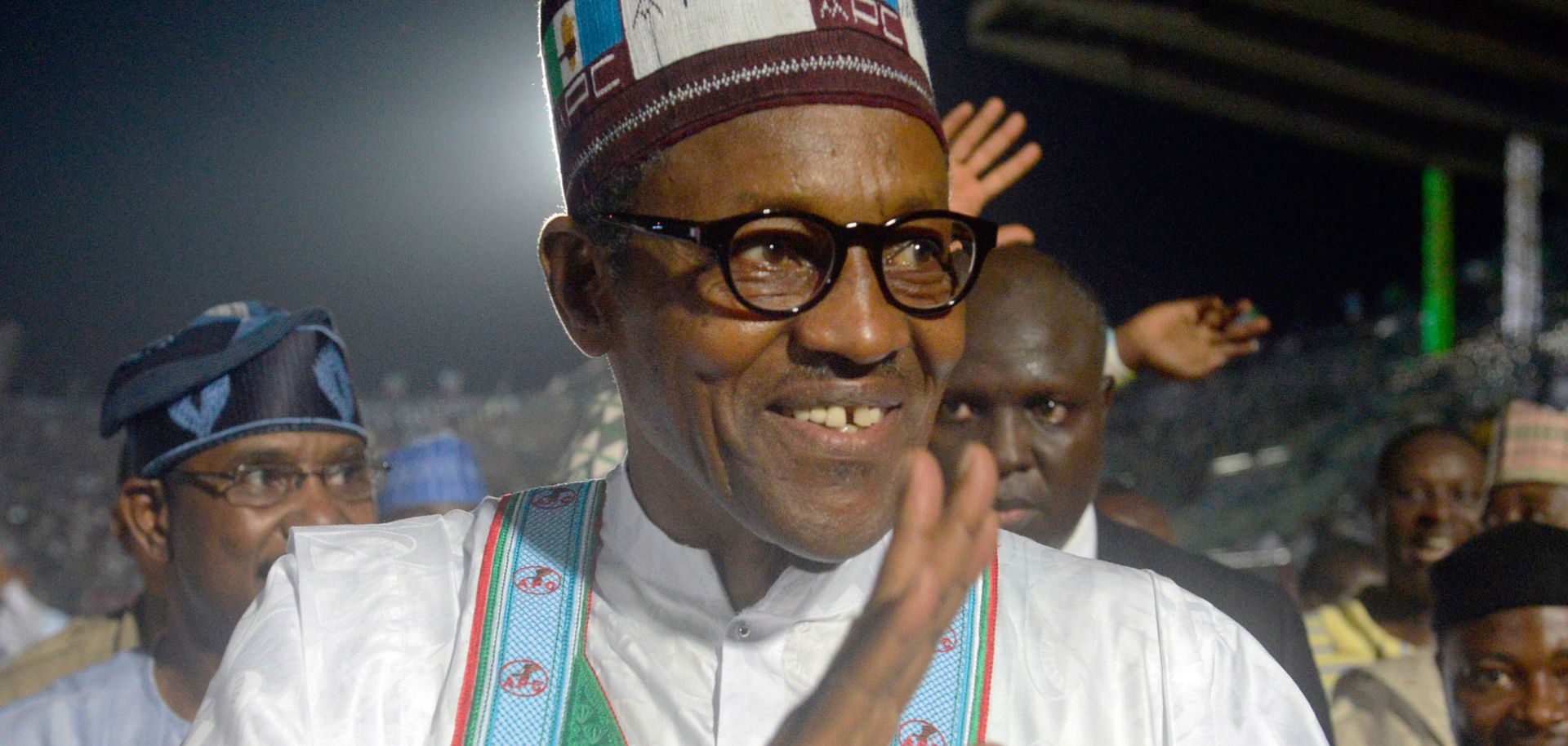ASSESSMENTS
Nigeria's Once and Future Leader Takes Charge
Apr 4, 2015 | 13:00 GMT

(PIUS UTOMI EKPEI/AFP/Getty Images)
Summary
When Nigerian President-elect Muhammadu Buhari takes office at the end of May, the four-time presidential candidate and former coup leader will do so with a strong electoral mandate and with the backing of a parliament likely to be controlled by his party, the All Progressives Congress (APC). Nonetheless, Buhari, who soundly defeated incumbent President Goodluck Jonathan in the March 28-29 election by more than 2.5 million votes, will need every bit of this political capital to take on myriad intractable challenges that have long bedeviled the pivotal West African nation.
The new president's top priority will be security, particularly tackling the Boko Haram insurgency in northeastern Nigeria by sustaining the high tempo of operations that Jonathan launched in the past couple of months. These operations will be popular across the country, but especially with the APC's core constituency in the north. Attempts to tackle Nigeria's ongoing economic and energy issues, particularly related to fuel subsidies and controversial oil sector reform legislation, will be more politically contentious.
Finally, though tensions typically rise in the Niger Delta when the presidency is held by a northerner, Buhari has tools at his disposal to prevent a revival of a southern insurgency. Overall, the president-elect will start out operating from a considerably stronger position than his predecessor.
Subscribe Now
SubscribeAlready have an account?
